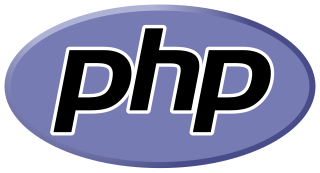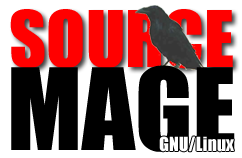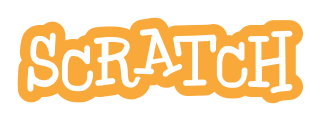The Comprehensive Perl Archive Network (CPAN) is a repository of over 250,000 software modules and accompanying documentation for 39,000 distributions, written in the Perl programming language by over 12,000 contributors. CPAN can denote either the archive network or the Perl program that acts as an interface to the network and as an automated software installer. Most software on CPAN is free and open source software.

In software development, obfuscation is the act of creating source or machine code that is difficult for humans or computers to understand. Like obfuscation in natural language, it may use needlessly roundabout expressions to compose statements. Programmers may deliberately obfuscate code to conceal its purpose or its logic or implicit values embedded in it, primarily, in order to prevent tampering, deter reverse engineering, or even to create a puzzle or recreational challenge for someone reading the source code. This can be done manually or by using an automated tool, the latter being the preferred technique in industry.

PHP is a general-purpose scripting language geared towards web development. It was originally created by Danish-Canadian programmer Rasmus Lerdorf in 1993 and released in 1995. The PHP reference implementation is now produced by the PHP Group. PHP was originally an abbreviation of Personal Home Page, but it now stands for the recursive initialism PHP: Hypertext Preprocessor.

UseModWiki is a wiki software written in Perl and licensed under the GNU General Public License. Pages in UseModWiki are stored in ordinary files, not in a relational database. Wikipedias in English and many other languages were powered by UseModWiki until switching to MediaWiki.

A wiki is an online hypertext publication collaboratively edited and managed by its own audience, using a web browser. A typical wiki contains multiple pages for the subjects or scope of the project, and could be either open to the public or limited to use within an organization for maintaining its internal knowledge base.

Source Mage is a Linux distribution. As a package is being installed, its source code is automatically downloaded, compiled, and installed. Source Mage is descended from Sorcerer.
Parrot was a register-based process virtual machine designed to run dynamic languages efficiently. It is possible to compile Parrot assembly language and Parrot intermediate representation to Parrot bytecode and execute it. Parrot is free and open-source software.
PlanetMath is a free, collaborative, mathematics online encyclopedia. The emphasis is on rigour, openness, pedagogy, real-time content, interlinked content, and also community of about 24,000 people with various maths interests. Intended to be comprehensive, the project is currently hosted by the University of Waterloo. The site is owned by a US-based nonprofit corporation, "PlanetMath.org, Ltd".

WebGUI is an open-source content management system written in Perl and released under the GNU General Public License.
Plain Old Documentation (pod) is a lightweight markup language used to document the Perl programming language as well as Perl modules and programs.
WURFL is a set of proprietary application programming interfaces (APIs) and an XML configuration file which contains information about device capabilities and features for a variety of mobile devices, focused on mobile device detection. Until version 2.2, WURFL was released under an "open source / public domain" license. Prior to version 2.2, device information was contributed by developers around the world and the WURFL was updated frequently, reflecting new wireless devices coming on the market. In June 2011, the founder of the WURFL project, Luca Passani, and Steve Kamerman, the author of Tera-WURFL, a popular PHP WURFL API, formed ScientiaMobile, Inc to provide commercial mobile device detection support and services using WURFL. As of August 30, 2011, the ScientiaMobile WURFL APIs are licensed under a dual-license model, using the AGPL license for non-commercial use and a proprietary commercial license. The current version of the WURFL database itself is no longer open source.

Scratch is a high-level block-based visual programming language and website aimed primarily at children as an educational tool, with a target audience of ages 8 to 16. Users on the site, called Scratchers, can create projects on the website using a block-like interface. Projects can be exported to standalone HTML5, Android apps, Bundle (macOS) and EXE files using external tools. Scratch was conceived and designed through collaborative National Science Foundation grants awarded to Mitchell Resnick and Yasmin Kafai. The service is developed by the MIT Media Lab, and has been translated into 70+ languages, and is used in most parts of the world. Scratch is taught and used in after-school centers, schools, and colleges, as well as other public knowledge institutions. As of 15 February 2023, community statistics on the language's official website show more than 123 million projects shared by over 103 million users, over 804 million total projects ever created, and more than 95 million monthly website visits.

ikiwiki is a free and open-source wiki application, designed by Joey Hess. It is licensed under the terms of the GNU General Public License, version 2 or later. ikiwiki is written in Perl, although external plugins can be implemented in any language.

The GNU Free Documentation License is a copyleft license for free documentation, designed by the Free Software Foundation (FSF) for the GNU Project. It is similar to the GNU General Public License, giving readers the rights to copy, redistribute, and modify a work and requires all copies and derivatives to be available under the same license. Copies may also be sold commercially, but, if produced in larger quantities, the original document or source code must be made available to the work's recipient.

LON-CAPA is an e-learning platform, also known as a Course Management System (CMS) or Learning Management System (LMS). It possesses the standard features of many learning platforms, but it differs from traditional e-learning platforms in that its many web servers can communicate with each other. Consequently, the term LON-CAPA can also refer to the LON-CAPA network, i.e. the entire set of LON-CAPA web servers and the specific implementation of an internet protocol that connects these web servers. LON-CAPA can also refer to the LON-CAPA project, i.e. the core team of scientists and programmers that develop and maintain the LON-CAPA software.
The following outline is provided as an overview of and topical guide to the Perl programming language:

Foswiki is an enterprise wiki, typically used to run a collaboration platform, knowledge base or document management system. Users can create wiki applications using the Topic Markup Language (TML), and developers can extend its functionality with plugins.










